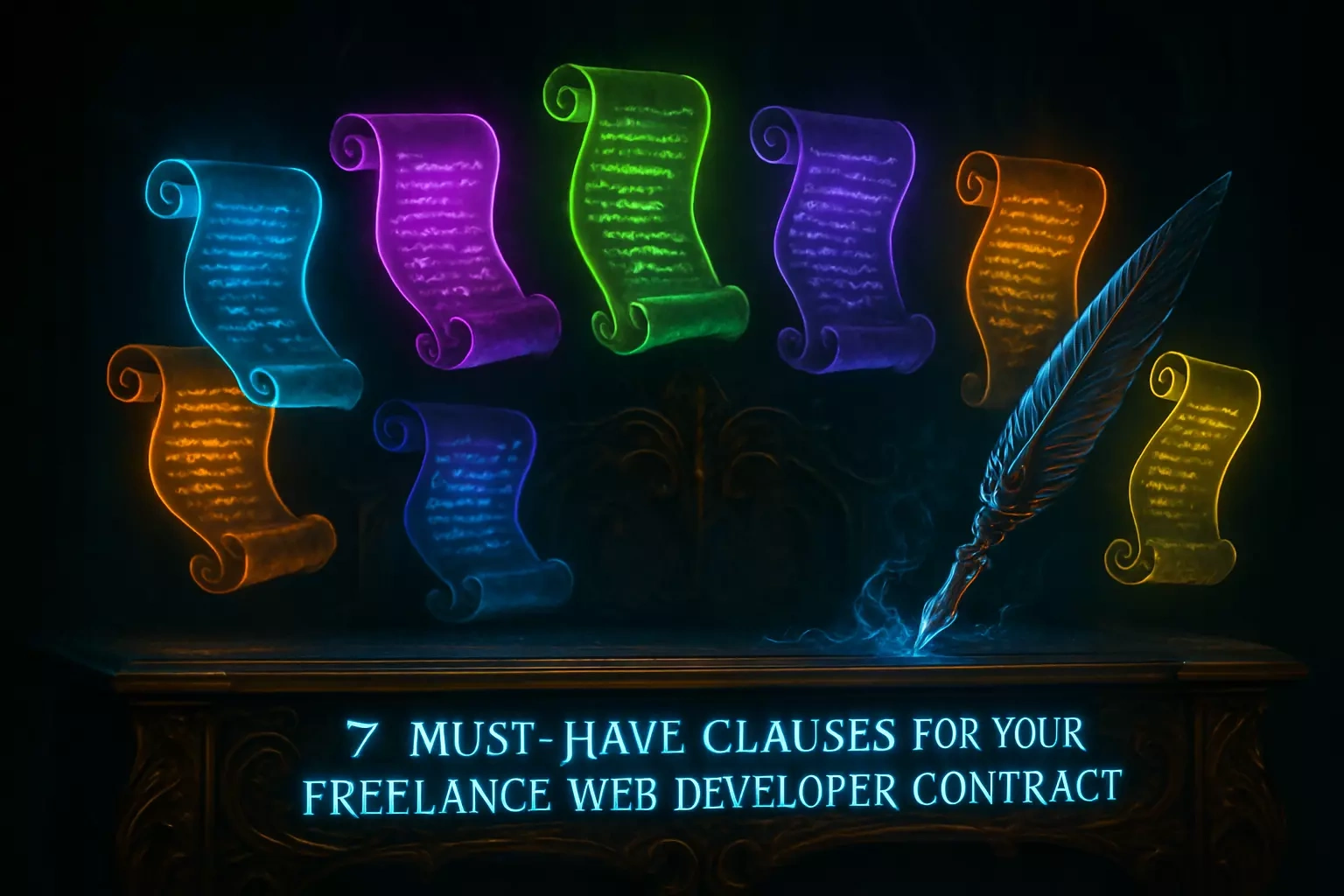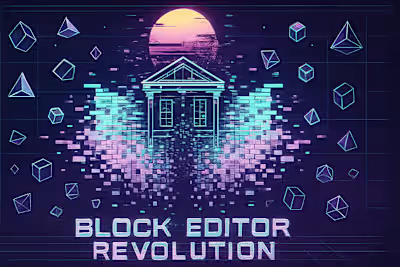7 Must-Have Clauses for Your Freelance Web Developer Contract

7 Must-Have Clauses for Your Freelance Web Developer Contract
Why a Solid Contract is Non-Negotiable
Defining Expectations Clearly
Minimizing Disputes
Legal Protection
Essential Clause 1: Detailed Scope of Work and Deliverables
Specificity is Key
Defining 'Done'
Essential Clause 2: Payment Terms and Schedule
Hourly vs. Project-Based Payment
Late Payment Penalties
Essential Clause 3: Intellectual Property (IP) Ownership
Work Made for Hire
Licensing of Pre-Existing IP
Essential Clause 4: Confidentiality and Non-Disclosure (NDA)
Defining Confidential Information
Duration of Confidentiality
Essential Clause 5: Revisions and Acceptance Criteria
Number of Revision Rounds
Acceptance Process
Essential Clause 6: Termination Clause
Termination for Cause
Termination for Convenience
Essential Clause 7: Dispute Resolution
Choosing a Method
Governing Law
Bonus: Other Clauses to Consider
Independent Contractor Status
Indemnification
Portfolio Rights
Conclusion: Secure Your Collaboration with a Strong Contract
References
7 Must-Have Clauses for Your Freelance Web Developer Contract
Why a Solid Contract is Non-Negotiable
Defining Expectations Clearly
Minimizing Disputes
Legal Protection
Essential Clause 1: Detailed Scope of Work and Deliverables
Specificity is Key
Defining 'Done'
Essential Clause 2: Payment Terms and Schedule
Hourly vs. Project-Based Payment
Late Payment Penalties
Essential Clause 3: Intellectual Property (IP) Ownership
Work Made for Hire
Licensing of Pre-Existing IP
Essential Clause 4: Confidentiality and Non-Disclosure (NDA)
Defining Confidential Information
Duration of Confidentiality
Essential Clause 5: Revisions and Acceptance Criteria
Number of Revision Rounds
Acceptance Process
Essential Clause 6: Termination Clause
Termination for Cause
Termination for Convenience
Essential Clause 7: Dispute Resolution
Choosing a Method
Governing Law
Bonus: Other Clauses to Consider
Independent Contractor Status
Indemnification
Portfolio Rights
Conclusion: Secure Your Collaboration with a Strong Contract
References
Posted Jun 12, 2025
Protect your project and business. Learn about the 7 essential clauses to include in your contract when hiring freelance web developers.









